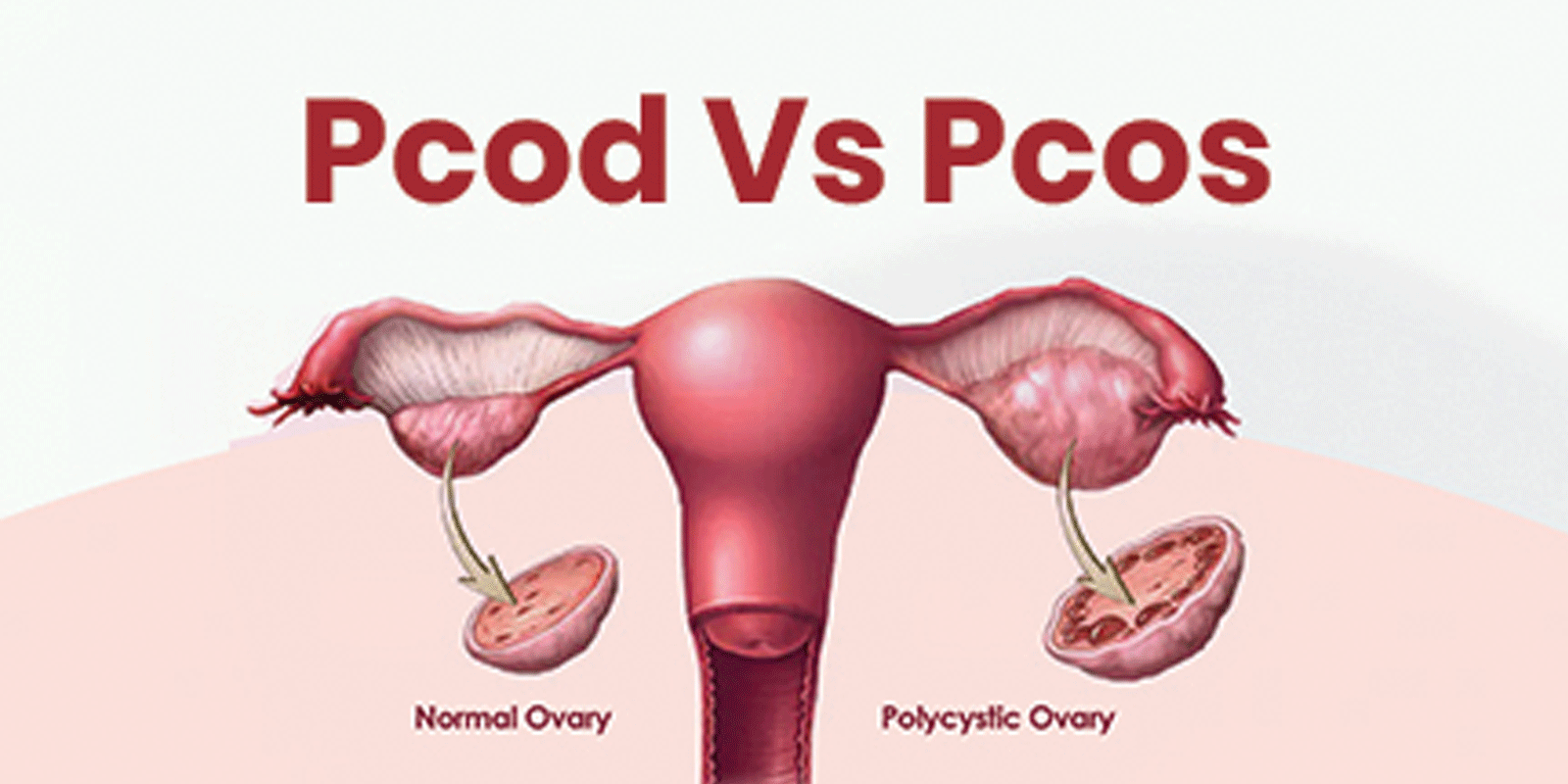INTRODUCTION
Women in the world have a long history of going through different types of ordeals, and to this date, they continue to face the challenges that have caused a lot of trouble for them. One of the many challenges faced by women is diseases that only they have to suffer. Two of these diseases are PCOD and PCOS. Polycystic Ovarian Disease and Polycystic Ovarian Syndrome, commonly known as PCOS and PCOD, respectively, have wreaked havoc in the lives of many women across the world, causing huge damage to their personal and professional lives. However, due to lack of information, these two problems are often considered to be the same. But there are a few major differences that distinguish them from one another. What are those differences, and how do these differences affect the course of treatment for these two diseases? We are going to answer these questions and more. Keep reading till the end to clear the air about these two.
What is PCOD?
Polycystic Ovarian Disease is a disease wherein the victim experiences the development of cysts because their ovaries release a lot of immature eggs or partially mature eggs, which transform into cysts. It is a common problem, and one out of three women has this problem. The symptoms of PCOD include weight gain in the abdominal region, hair loss, irregularity in periods, and even infertility. But there is no need to get afraid of this disease because with the right kind of treatment, it can be treated completely. All you need is proper guidance from someone who knows how to deal with PCOS and has treated a lot of individuals in the past. Common methods of treating PCOS include diet control, exercising, and medication.
Symptoms of PCOS
Let’s discuss some of the most common symptoms of PCOD, which, when noticed at the right time, can help in the treatment of this disease. It is important to know about the symptoms of PCOD because if you are aware of these symptoms, then you can follow a course of treatment accordingly. Some of the most common symptoms of PCOD are
- Weight gain in the abdominal area
- Hair loss
- Irritation in private parts
- Irregularity in periods
- Infertility
The last one must have gotten you a bit more nervous than usual, but if the preceding four symptoms are dealt with right after their occurrence, the fifth symptom will not be seen at all.
Treatment of PCOS
There are a lot of methods with the help of which PCOD could be cured, but it is you who has to be sincere with these methods. The best treatment of PCOD from the best doctor in the world would be rendered useless if you are not sincere with it. With the help of regular exercising, a diet deficient in carbs and trans fats, and medication, PCOD can be cured.
What is PCOS?
If you are confused between PCOD and PCOS, then you must understand the basic difference between a disease and a syndrome. A disease is the effect of a lot of symptoms, whereas a syndrome is a cluster of symptoms that eventually harms our bodies. PCOS is Polycystic Ovarian Syndrome, meaning it is a cluster of different types of symptoms. It is a rare problem and is not seen in a lot of women. With the right kind of medical attention, PCOS can be treated. Efforts from the victim’s side will be needed in the form of exercise and diet control. The major symptoms of PCOS include insulin resistance and high blood pressure. Someone suffering from PCOS can also have diabetes due to fluctuations in the insulin levels.
Symptoms of PCOS
Some of the most common symptoms of PCOS are as follows:
- Insulin resistance or fluctuations in the insulin levels
- High blood sugar
- High blood pressure
Treatment for PCOS
PCOS is a serious problem, and you should seek immediate medical assistance, as the chances of getting infertility in PCOS are very high! Therefore, if the symptoms are severe, then consult a doctor immediately.
PCOD vs PCOS: Clearing Confusion
PCOD is not that severe of a disease and is not a big deal because it is preventable by using mild deterrents. However, the same is not true for PCOS. Chances of getting PCOS-induced infertility are way more than that of getting it from PCOD. Therefore, it is important to know the difference between these two and their symptoms. Now that all your doubts have been cleared, you know what you are dealing with and how you can deal with them. Remember, more than diseases, the lack of information about them is what causes maximum fatalities. When medical science was not advanced enough to differentiate between these two, it led to a lot of problems. To ascertain that such problems do not arise again, the above information is going to help you big time. Share this with your friends and colleagues for their benefit. We are here to educate you about anything we can. To us, your health matters the most.

